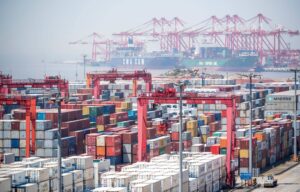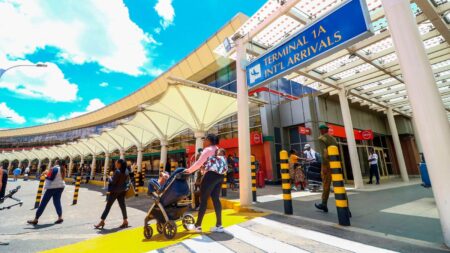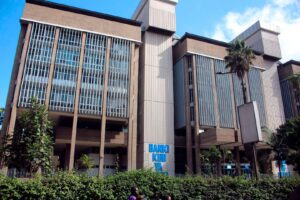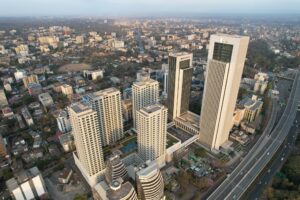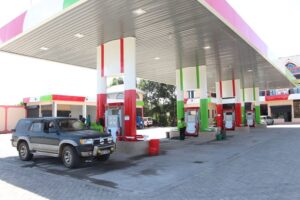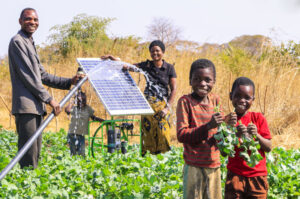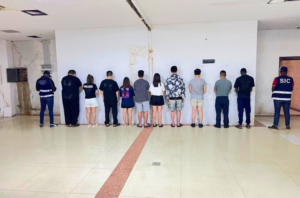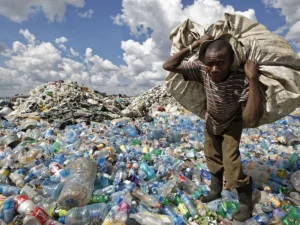- BRICS summit in Brazil to focus on global governance reform
- Dedollarization: BRICS take on Trump and mighty dollar
- Trump’s second term: A rare opportunity for real African energy independence
- ‘Perfect storm’ in South Sudan demands urgent action – UN
- Kenya’s green gold rush that clean energy investors can’t ignore
- Mining diplomacy: Will the US exploit DRC’s critical minerals?
- Zoned for impact: How a cross-border Special Economic Zone is powering Africa’s green switch
- AIM Congress 2025: UAE’s tolerance conference aims to fix a fractured world
Business
- Kenya’s diaspora remittances in October increased by $18.7 million compared a month earlier.
- CBK in its weekly dispatch announced that the cumulative inflows for the 12 months to October 2024 increased by 15.3%.
- Despite the dollar inflows from diaspora remittances, Kenya’s currency weakened marginally against the USD in the week ending Nov 15.
Kenya’s diaspora remittances increased by $18.7 million (KSh2.4 billion) between September and October 2024, the latest data from the Central Bank shows. Kenyans living and working abroad wire home $437.2 million (KSh56.7 billion) in October, a significant increase from the $418.5 million (KSh54.4 billion) reported the previous month.
Compared to a similar period last year this was an increase of 22.9 per cent when the foreign remittance stood at Ksh46 billion ($355.6 million).
The Central Bank of Kenya (CBK) in its weekly bulletin published on Friday, November 15, announced that the cumulative inflows for the 12 months …
- China integrates mega logistics firms to form the Global Silk Road (Chongqing) Hub Port International Supply Chain Ltd.
- It would be the major shipping and logistics link between China and its African trade partners, with Congo taking the lead in the greater EA region.
- Togo, South Sudan, Sierra Leone, and Madagascar are also set to benefit from the joint logistics approach.
Kenya is set to benefit from a new plan by China to consolidate several mega logistics firms and development companies into one entity for better trade dealings with Africa. The Global Silk Road (Chongqing) Hub Port International Supply Chain Ltd was launched in Chongqing, China, last week.
The discussion featured exchanges on building an integrated platform for global commerce and mega logistics centres, all aimed at bolstering trade between China and Africa.
Shanghai Greenroad Warehousing and Logistics Group Co., Ltd, Zhejiang Holley Global Industry Development Ltd, Chongqing Jiangjin …
- South Africa inflation has fallen to a more than four-year low.
- South Africa’s economy has experienced a thrill of positivity since the Government of National Unity (GNU.
- S&P Global Ratings endorsed the positivity by raising the view of the nation to positive from stable.
South Africa’s inflation has fallen to a more than four-year low, signaling another reduction in borrowing rates by the monetary policy committee on Thursday.
Consumer prices surged 2.8 per cent in October from a year earlier, compared with 3.8 per cent in the preceding month, according to Pretoria-based Statistics South Africa through a statement on their website.
The decline below the lower end of the central bank’s 3 per cent to 6 per cent target range will likely influence the monetary policy committee to ease the monetary policy benchmark for the second time in as many months. The widespread expectation is for the MPC to …
- Office Occupancy Levels Across Africa increased by an average of 15 percent from 2022 numbers
- Knight Frank also points to rising investor interest in the continent’s manufacturing, mining, and energy sectors.
- In the retail market, there is a strong focus on enhancing consumer experiences across the continent.
Office occupancy levels across Africa’s office markets have recovered from 60 per cent in 2022 to 75 per cent this year, according to global property consultant, Knight Frank’s biennial 2024/25 Africa Report.
This notable improvement in office occupancy levels is largely attributed to the gradual return to the office following the disruption caused by the pandemic. For example, Kenya’s office occupancy rate now stands at 77 per cent, driven by the limited supply of prime offices – just 617,000 sqm is expected by the end of 2024, while take-up levels remain steady.
According to Mark Dunford, CEO, Knight Frank Kenya, there is …
- The firms exploit legal loopholes to steal, they exploiting gaps in beneficial ownership laws to repatriate billions of profits in the mining sector
- According to the report, Kenya’s mining industry has the potential to contribute 4-10 percent of the country’s gross domestic product.
- The country earned Sh300 billion from the mining sector last year.
Corrupt individuals in Kenya are exploiting gaps in beneficial ownership laws to repatriate billions of profits in the mining sector, limiting its contribution to the general economy.
A new report released by the Global Financial Integrity (GFI) dubbed ‘Illicit Financial Flows Related to Beneficial Ownership in the Mining Sector in Kenya’ regrets that several billions have been lost over the years.
According to the report, Kenya’s mining industry has the potential to contribute 4-10 percent of the country’s gross domestic product.
…“Unfortunately, the sector contributes less than a percentage of the country’s GDP which is significantly
- Kenya’s $168Bn plundered development loans were taken over 11 year period between 2010 and 2021
- In one instance, the OAG raised an issue with the missing drawdowns for three loans from BELFIUS Bank and Unicredit totaling €29,510,462 (Sh4.1billion).
- The audit examined how 39 commercial loans valued at $168billiom (Sh1.36 trillion) during the time were used, and whether they were borrowed legally.
The Office of the Auditor General has opened a can of worms on the possible diversion of loans and plunder of funds disbursed to Kenya for development over the past 10 years.
A Special Audit by Auditor General Nancy Gathungu, on loans Kenya took between 2010 & 2021 shows that the country received $ 167.7 billion (Sh1.13 trillion) in the consolidated funds accounts however, the accountability of the funds is in question.
The revelations come at a time when President William Ruto has already gazetted the Presidential Taskforce on …
- Kenya’s second-hand clothes imports rose to Sh27.8 billion in the one year to March 2024.
- The second-hand clothes trade has thrived over the years and has since attracted traders from China, Kenya’s top source market, to set base in Gikomba
- The Mitumba Consortium Association of Kenya recently noted that the number of people venturing into the sector is increasing at a fast pace
The demand for second-hand clothes (mitumba) in the Kenya is on the rise, as more people, mostly from the informal sector, opt for the relatively low-cost commodity.
Picturing this is the latest quarterly data by the Kenya National Bureau of Statistics (KNBS), which shows the value of mitumba imports by traders rose to Sh27.8 billion in the one year to March 2024. This is from Sh20.9 billion in the previous year, representing a 33 per cent jump.
Higher quality and relatively lower prices for used attire …
- Kenya’s parastatal set for privatisation, the National Oil Corporation of Kenya could face closure if the government does not inject new funding or get investors fast.
- The Corporation’s strategic plan expired in 2020, and Management has yet to develop another strategic plan to cover the current period.
- The corporation’s latest audited results for June 2023 show that it is running on a negative working capital position with its current liabilities outstripping current assets.
National Oil Corporation will need to seek financial support, restructure its operations, or face bankruptcy after its debts exceed its assets by Sh9.1 billion ($70.96 million).
Kenya’s Auditor General Nancy Gathungu has warned that the firm is technically insolvent amidst the government’s push for a strategic investor to run the parastatal.
This means that the National Oil Corporation of Kenya could face closure if the government does not inject new funding or get investors fast.
The corporation’s …
- Treasury Bonds Auction for the month of July recorded only a 2 percent subscription rate
- The domestic bond market has faced challenges, despite the lower yields on Eurobonds
- This high yield reflects investor concerns about Kenya’s economic stability and fiscal health
Investors have shied away from government bonds as the treasury only managed to raise 2 per cent of the Sh20 billion it had targeted in its July tap sale.
This saw the government only get Sh487.5million as the investors instead preferring to pump funds into short-term Treasury bills on expectations that interest rates will soon go up in the country.
The bonds are instruments through which the government will use to borrow from the market.
The domestic bond market has faced challenges. Despite the lower yields on Eurobonds, yields on Kenyan government bonds remain high, with 10-year bonds yielding 17.759 per cent as of early July 2024.
This high …






